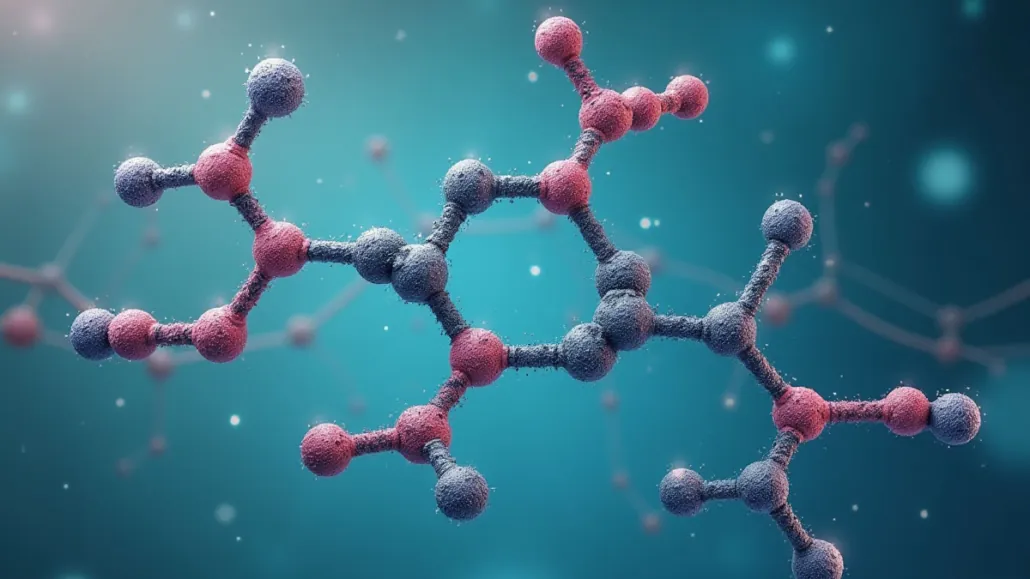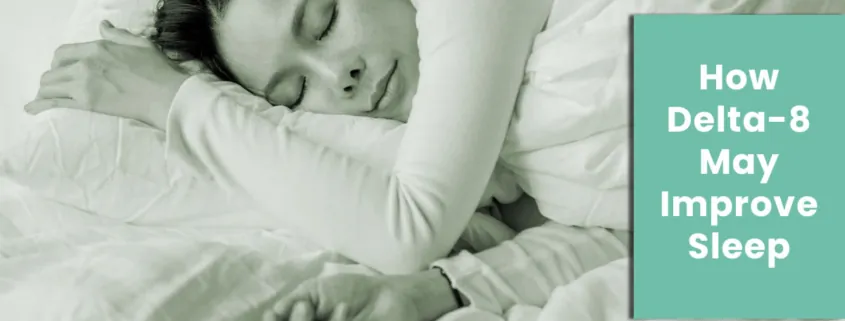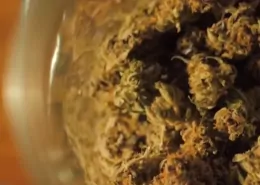Can Delta-8 THC Help You Sleep Better?
Delta-8 THC, a lesser-known cannabinoid found in the cannabis plant, has recently become a hot topic, especially within the vaping industry. With claims that it offers similar benefits to Delta-9 THC but with fewer side effects, Delta-8 is being explored as a potential aid for sleep. This article provides a detailed exploration of Delta-8 THC and its potential to improve sleep, offering a thorough understanding for industry professionals who need accurate and comprehensive information.
What is Delta-8 THC?
Delta-8 THC, short for Delta-8 tetrahydrocannabinol, is a naturally occurring cannabinoid found in the cannabis plant. Unlike its more famous counterpart, Delta-9 THC, which is the primary psychoactive component of cannabis, Delta-8 occurs in much smaller quantities. However, it has garnered attention due to its similar, yet milder, psychoactive effects.
The Chemical Structure and Effects
Delta-8 THC is structurally similar to Delta-9 THC, with only a slight difference in the chemical bond placement. This small difference, however, results in a less intense high compared to Delta-9. According to the National Cancer Institute, Delta-8 THC binds to the cannabinoid receptors in the nervous system, much like Delta-9, but with a lower affinity, leading to its milder effects. Delta-8 is noted for its anti-anxiety, anti-nausea, pain-relieving, and appetite-stimulating properties 1.

Legal Status of Delta-8 THC
The legality of Delta-8 THC is complex. Under the 2018 Farm Bill, hemp-derived products containing no more than 0.3% Delta-9 THC are federally legal in the United States. Because Delta-8 is often derived from hemp, it technically falls under this category. However, several states have banned Delta-8 THC, and its legal status is constantly evolving. It is crucial for industry professionals to stay informed about the local laws regarding Delta-8 in their region2 .
The Potential of Delta-8 THC as a Sleep Aid
The use of cannabis for sleep is not new. Cannabidiol (CBD) and other cannabinoids have been studied for their potential to improve sleep quality. Delta-8 THC, with its unique properties, has entered the spotlight as a possible sleep aid. But how effective is it?
How Delta-8 THC May Improve Sleep
Delta-8 THC interacts with the body’s endocannabinoid system (ECS), a network of receptors that plays a crucial role in regulating various physiological processes, including sleep. Delta-8 binds to cannabinoid receptors in the nervous system, which are responsible for calming the body and mind. This interaction helps reduce anxiety, lower heart rate, and decrease mental activity, all of which are essential for falling asleep and staying asleep3.
One of the key benefits of Delta-8 over Delta-9 THC is its ability to provide these calming effects without the intensity of Delta-9’s psychoactive impact. This makes Delta-8 particularly appealing to those who may be sensitive to the stronger effects of Delta-9 but still want to experience the benefits of THC.

Scientific Research on Delta-8 and Sleep
The research on Delta-8 THC’s impact on sleep is still in its early stages. However, studies on THC and sleep, in general, offer some insights. Research has shown that THC can reduce sleep latency—the time it takes to fall asleep. This is particularly useful for individuals suffering from insomnia or other sleep disorders4 .
Anecdotal evidence suggests that Delta-8 may help users stay asleep longer and experience deeper, more restful sleep. Some users have reported that Delta-8 not only helps them fall asleep but also prevents them from waking up during the night. Additionally, there are claims that Delta-8 can enhance the experience of lucid dreaming, although scientific research on this aspect is limited.
Delta-8’s Role in Managing Pain for Better Sleep
Chronic pain is a common reason for sleep disturbances. Delta-8 THC’s pain-relieving properties make it a potential option for those who struggle to sleep due to pain. By reducing pain and promoting muscle relaxation, Delta-8 may help users achieve a more comfortable and uninterrupted sleep. Industry professionals should consider this when advising customers who are seeking relief from pain-related sleep issues5 .
Practical Tips for Using Delta-8 THC as a Sleep Aid
For those considering Delta-8 THC as a sleep aid, understanding the correct usage is crucial. Here are some key tips to ensure safe and effective use:
1. Consult a Healthcare Professional
Before incorporating Delta-8 THC into a sleep regimen, it’s important to consult with a healthcare provider. While Delta-8 is generally considered safe, it’s essential to ensure it doesn’t interact negatively with any medications or existing health conditions.
2. Select the Right Delivery Method
The method of consuming Delta-8 THC can significantly affect its effectiveness. Vaping or using tinctures may provide quicker onset of effects, making them ideal for those who need help falling asleep quickly. On the other hand, edibles like gummies may take longer to kick in but offer prolonged effects, which can be beneficial for those who wake up during the night.
3. Start with a Low Dose
As with any cannabinoid product, starting with a low dose is recommended. This approach allows users to gauge their body’s response to Delta-8 and adjust the dosage as needed. This is especially important for those who are new to THC products.
4. Consider Combining with Other Cannabinoids
Delta-8 THC can be more effective when combined with other cannabinoids, such as CBD. This combination can enhance the therapeutic effects while minimizing potential side effects. Industry professionals should be aware of products that offer these combinations and understand how they may benefit customers.
5. Incorporate Additional Sleep-Promoting Ingredients
Some Delta-8 products are formulated with additional natural ingredients like melatonin or lavender, known for their calming properties. These ingredients can further enhance the sleep-inducing effects of Delta-8 THC and contribute to a more restful night’s sleep.
Understanding the Potential Downsides
While Delta-8 THC shows promise as a sleep aid, it’s important to recognize that it may not be effective for everyone. Here are some considerations:

1. Individual Variability
Each person’s response to cannabinoids can vary widely. What works well for one individual may not be as effective for another. Understanding the unique needs and responses of customers is crucial for industry professionals when recommending Delta-8 products.
2. Potential Legal Issues
Given the complex legal status of Delta-8 THC, there is a risk that regulations may change. Industry professionals must stay informed about local laws and advise customers accordingly to avoid legal complications.
3. Quality of Products
The quality of Delta-8 THC products can vary significantly between manufacturers. It’s essential to choose products from reputable sources that offer third-party lab testing to ensure purity and potency. High-quality products are more likely to provide the desired effects without harmful contaminants.
Conclusion: Is Delta-8 THC the Right Choice for Sleep?
Delta-8 THC presents an intriguing option for those seeking a natural sleep aid. Its ability to calm the mind, reduce anxiety, and alleviate pain makes it a promising alternative to traditional sleep aids. However, the effectiveness of Delta-8 will vary from person to person, and it’s important to approach its use with caution.
For vaping industry professionals, understanding the nuances of Delta-8 THC, its potential benefits, and its limitations is crucial for providing accurate and helpful advice to customers. By staying informed and considering the individual needs of each customer, professionals can help users find the right solution for their sleep challenges.
References:
- National Cancer Institute – Delta-8 THC Overview: https://www.cancer.gov/about-cancer/treatment/cam/patient/cannabis-pdq ↩︎
- U.S. Farm Bill 2018 – Hemp Legislation: https://www.congress.gov/bill/115th-congress/house-bill/2/text ↩︎
- Effects of Cannabinoids on Sleep and their Therapeutic Potential for Sleep Disorders: https://www.ncbi.nlm.nih.gov/pmc/articles/PMC8116407/ ↩︎
- Cannabis, Cannabinoids, and Sleep: a Review of the Literature: https://link.springer.com/article/10.1007/s11920-017-0775-9 ↩︎
- Cannabis and pain: a scoping review: https://www.sciencedirect.com/science/article/pii/S0104001421002748 ↩︎
- Bestselling Vapes in UK After Disposable Ban: What to Stock 2025 - August 8, 2025
- Argentina Debates Stricter Vape Laws Amid Prohibition Failures - August 8, 2025
- Nigeria Advocacy Group Urged to Hike Tobacco & Vape Tax by 100% - August 8, 2025








